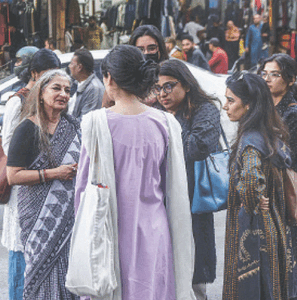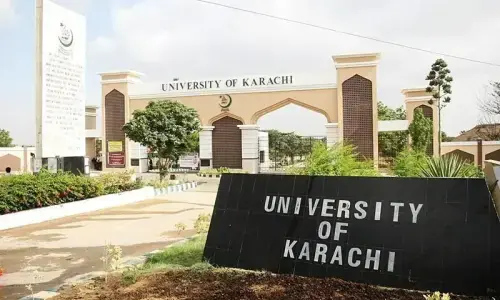KARACHI: Student activists and members of civil society converged at Teen Talwar in Clifton and marched towards Fawara Chowk, where they staged a brief sit-in to lodge their protest against the controversial canals project on Tuesday.
The protest was organised by the Save Indus Students Alliance and Karachi Bachao Tehreek (KBT).
The protesters were carrying placards and chanting slogans decrying the existing water woes in the province.
Muneer Hussain, a student from Hala, said: “Karachi’s water is sourced from the Indus River, and the construction of new canals will drastically reduce the city’s supply. If that happens, water wars could erupt and spread across Karachi like civil unrest.”
“The citizens [of Karachi] need to understand that the issue is not specific to farmers but an issue of survival for everyone,” he added.
Bisma Barkat, a member of the KBT organising committee, said, “There are multiple voices present [at the protest] from all walks of life in Sindh. It does not make sense to not be one of those voices because this issue is existential for some [people].”
Speaking on how the project would affect Karachi, Barkat said that 85 per cent of the city’s water came from the Keenjhar Lake, which was fed by the Indus River. “If more canals are built on the Indus River, that water won’t reach Keenjhar, and ultimately, it won’t reach the common man in Karachi,” she said.
She continued, “If you do not get water, how do you run a metropolitan city that runs your factories and industries, which employ the poor? Even if canals are drawn, the golf courses [in Karachi] will still be maintained, but it is the poor people of Karachi who will be most affected.”
Wareesha Mehtab, another member of the KBT, said, “Around 70 per cent of Karachi’s population is the working class. They are the ones who will be affected the most.”
She also stated that the project poses a threat to the fishermen and farmers within the metropolis.
Published in Dawn, April 23rd, 2025



































